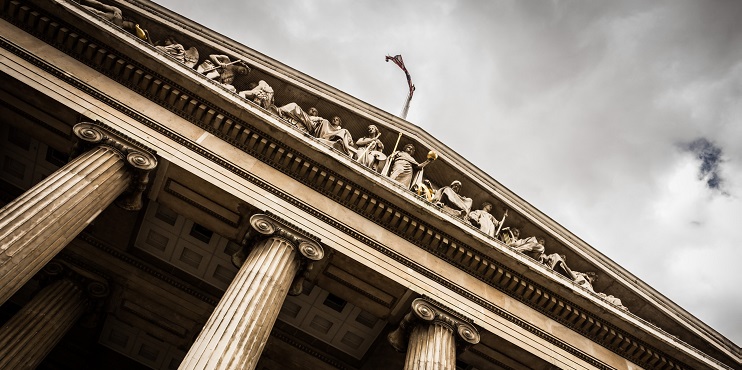- The Justice Council is the new autonomous body proposed in the draft of the new Constitution, to be in charge of appointments, governance, administration, training and discipline in the National Justice System; within the framework of a proposal that profoundly rearticulates the Judiciary as we know it today.
The Proposal
a. What is the Justice Council?
The Justice Council is proposed as an autonomous and technical body created with the aim of strengthening judicial independence. It will be a parity and plurinational body, i.e. at least 50% of its members must be women and its members will be elected according to criteria of plurinationality and territorial equity.
It will be composed of 17 members, who will serve for 6 years and will be renewed every three years:
- 8 tenured judges elected by their peers;
- 2 officials or professionals from the National Justice System (SNJ), also elected by their peers;
- 2 members elected by indigenous peoples; and,
- 5 members elected by Congress of Deputies (currently the Lower Chamber of Congress) from shortlists prepared by the High Public Management Council, following a public competition.
Decisions shall be taken by a majority of its members.
b. Powers of the Justice Council
The Proposal gives the Justice Council a number of powers, including the following:
- Appoint all SNJ judges and officials.
- Take disciplinary measures against such judges and officials, including removal.
- Review the management of the courts of the SNJ, and issue instructions concerning their organization and administrative management. It may not, however, review judicial decisions.
- It shall evaluate and grade the performance of the judges and officials of the SNJ. It shall also ensure their training and continuous improvement. Moreover, the Justice Council shall have the direction of the Judicial Academy.
- It shall define the budgetary needs of the JNS and manage and implement its resources.
c. Only the National Justice System
It is important to note that the Council will only be able to exercise its powers within the SNJ. In other words, it will not have an impact on Indigenous Peoples’ legal systems or on special courts that are not part of the SNJ.
How does the Proposal differ from the existing Constitution?
The Proposal radically changes the judiciary as we know it.
- Appointments. Currently, the Supreme Court, the President and the Senate all participate in the appointment of Supreme Court justices, while the justices of the Courts of Appeal and the Ordinary Courts are appointed by the President from a list of three candidates proposed by the Supreme Court or the relevant Court of Appeal, respectively. Thus, these appointments are not entrusted to a single body, but involve different institutions.
- The Supreme Court as a “Court of Cassation”. On the other hand, the current Constitution confers on the Supreme Court the directive, disciplinary and economic superintendence of all the Courts of the Nation; attributions that would now be exercised by the Council of Justice with respect to the Courts that conform the SNJ. In other words, the Supreme Court would have the sole mission of deciding the matters that the law entrusts it to hear.
Greater guarantee of judicial independence?
The decision to entrust the appointment of judges to an independent body, so that the executive and legislative branches do not intervene in the selection and career of judges, seeks to protect the independence of the SNJ.
Experts, such as the Venice Commission, had recommended that the Justice Council should be composed mainly, or at least mostly, of judges1. This was not included in the Proposal, nor was it included as a requirement that the judges on the Council should come from different courts and tribunals. At the same time, a significant number of Council members will be appointed by the Congress of Deputies, with a simple majority, and there is no requirement for members elected by Congress and indigenous peoples to have a law degree. These experts have warned that this could undermine the legitimacy of the Justice Council.
In Chile, judges have traditionally submitted their performance to the evaluation of their superiors. The proposed change leaves the evaluation of judges in the hands of a body outside the judiciary which, by its composition, could undermine the independence of judges.
The Council of Justice will be empowered to remove judges. The draft provides that the decision taken by the plenary of the Council may be challenged “before the body established by the Constitution“. Since such a body is not defined, this provision creates uncertainty for the safeguarding of the immovability of judges.
Contact:
Footnotes
1 See “Opinion on the drafting and adoption of a new Constitution, adopted by the Venice Commission at its 130th Plenary Session (Venice and online, 18-19 March 2022)“. Page 20.





